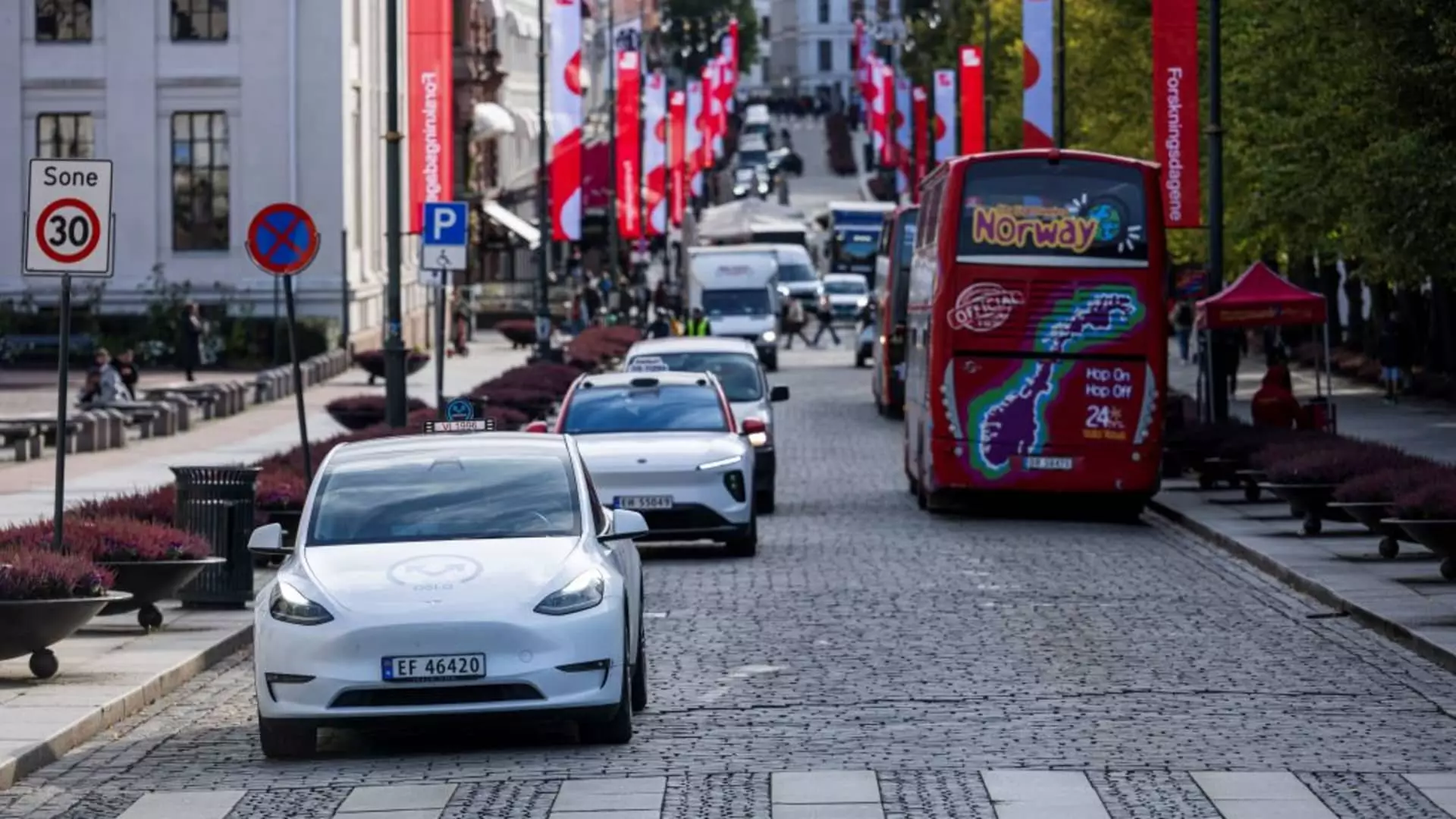In a turbulent market environment, Tesla’s stock experienced a notable decline of approximately 5% in a single trading day. This drop came in response to President Donald Trump’s announcement regarding significant tariffs imposed on imported goods from China, Mexico, and Canada. The automotive industry recognized that these tariffs would have widespread implications for supply chains, particularly as Tesla derives about half of its production from China. Despite the potential challenges, Tesla’s strategic decision to operate factories not just in China but also in the United States and Europe, specifically in Berlin, presents a vital advantage over its competitors in the electric vehicle (EV) sector.
While the entire automotive landscape braced for the turbulence created by these tariffs, it is essential to note that Tesla suffered a more severe stock market reaction than its tech peers. For instance, Apple experienced a comparatively milder decline of over 3%, highlighting Tesla’s heightened vulnerability amidst these geopolitical tensions. The financial discourse surrounding Tesla became distilled into simple yet profound concerns, particularly regarding how such political measures would directly affect its bottom line.
Declining Vehicle Registrations: An Emerging Trend
In addition to the pressures from tariffs, Tesla is grappling with alarming drops in vehicle registrations across several influential European markets. Most notably, France, which ranks among the largest EV markets in Europe, reported a staggering 63% decline in Tesla registrations in January compared to the same month the previous year. This decline was not merely an unfortunate occurrence in isolation; it starkly contrasts with the overall trends in electric vehicle sales and the automotive sector as a whole in France.
Sweden and Norway, two additional key markets for Tesla, also exhibited concerning sales figures, with registrations falling 44% and 38%, respectively. These statistics suggest that Tesla’s dominance in these markets could be waning, raising questions about consumer sentiment and potential issues with product appeal in these regions.
Amidst these challenges, Tesla has implemented notable pricing adjustments. Over the weekend, the company reduced lease prices for its base Model 3 and the unpainted steel Cybertruck in the U.S. market. These reductions likely aim to stimulate sales in light of waning demand for the Cybertruck, a highly anticipated model that has not yet lived up to expectations. An independent analyst specializing in Tesla forecasts suggested that units of the Cybertruck could plummet to approximately 21,000 by 2025—a stark contrast to earlier projections.
Furthermore, the same analyst noted that Tesla ended 2024 with around 10,600 unsold Cybertrucks, insinuating potential overproduction issues combined with a significant drop in consumer interest. The transition from having a robust backlog of orders to a scenario where the order page indicated immediate availability for purchase raised immediate concerns about the company’s market strategy.
Adding another layer of complexity, Tesla’s association with political figures, particularly Donald Trump, complicates its public image amid fluctuating brand value. Elon Musk previously supported Trump’s political campaign financially with substantial contributions, while also endorsing Germany’s far-right political party, the Alternative for Germany (AfD). This complex political engagement may alienate portions of Tesla’s consumer base, particularly those who prioritize corporate social responsibility and ethical governance in their purchasing decisions.
Recent branding analyses indicated that Tesla’s brand value plummeted by 26% in 2024, suggesting a waning perception of the company that aligns with changing consumer attitudes, political affiliations, and market challenges.
Tesla stands at a crossroads marked by volatile market dynamics influenced by tariffs, significant drops in vehicle registrations, and the complicated interplay of political affiliations and public perception. While the company leverages its global manufacturing presence to mitigate some challenges, it must navigate the ever-evolving landscape of consumer demand and political scrutiny to secure its future in the competitive electric vehicle market. The next few quarters will be crucial for Tesla as it seeks to stabilize its brand value, retain market share, and adapt to the pressures of both domestic and international environments.

